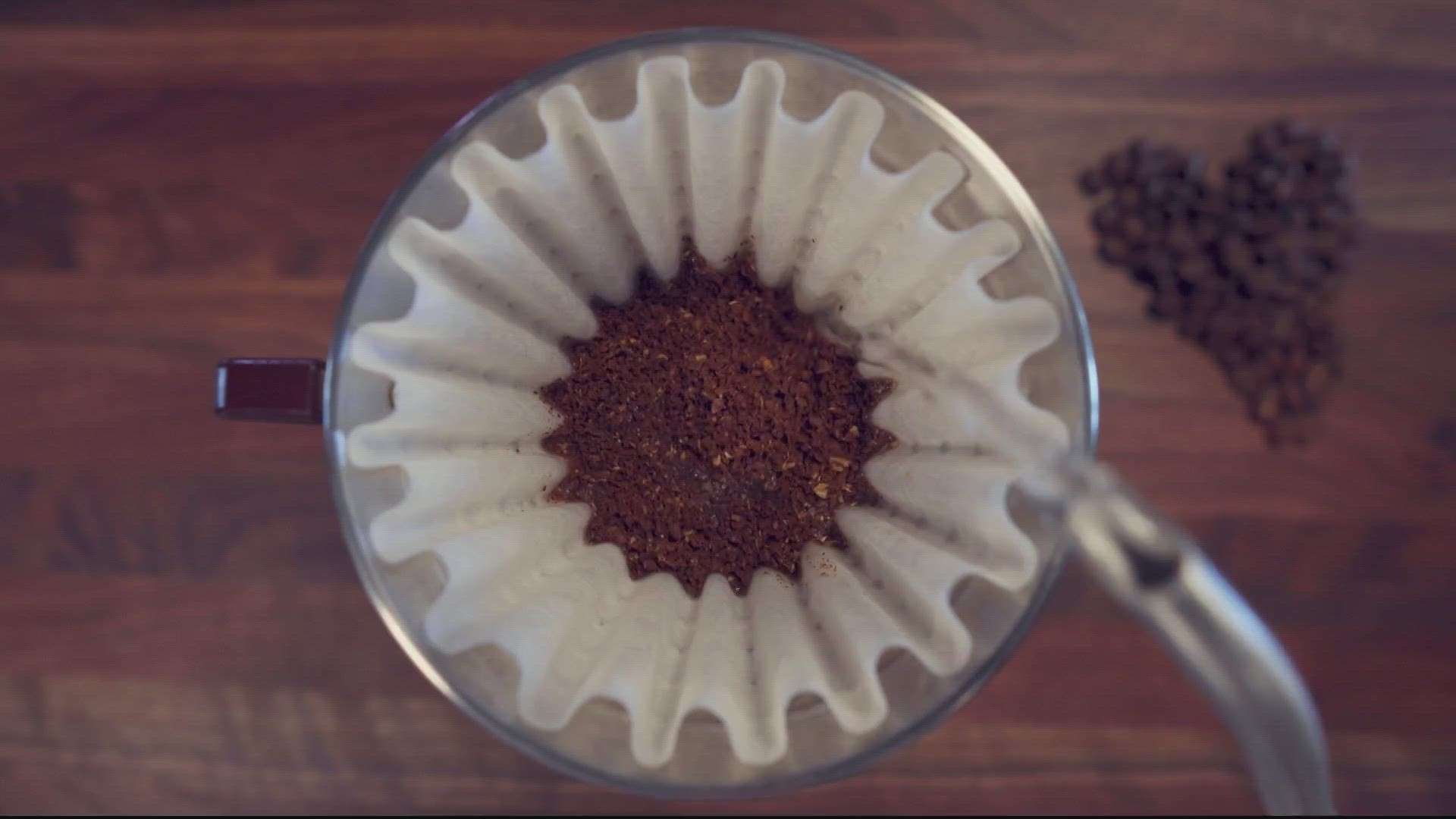WASHINGTON — From a breakfast table staple to a midday pick-me up, coffee jolts energy into the hustle and bustle of daily routine.
However, as the American National Coffee Association reports more consumers are cutting caffeine, let's slow-drip the truth about an unsuspecting ingredient brewing claims online.
THE QUESTION
Do some decaf coffees and teas contain potentially harmful chemicals as a result of the decaffeination process?
THE SOURCES
Alice Smith, MS, RD, LDN, CHC -- Registered Dietitian, Certified Health Coach
THE ANSWER
Yes, some decaf coffees and teas contain chemicals from the decaffeination process, though the amount is small.
WHAT WE FOUND
Consumer Reports outlines the three primary methods to remove caffeine from regular coffee beans. The most common uses a chemical solvent called methylene chloride, also known as dichloromethane. The second method uses liquid carbon dioxide,. The third, called the Swiss Water Process, uses only water and is the most expensive.
"The carbon dioxide and water methods are chemical-free, whereas the solvent method relies on synthetic chemicals. However, the FDA limits the amount of chemical solvent allowed in decaf coffee," Smith explained.
Title 21 of the FDA's Code of Federal Regulations states the chemical solvent residue in coffee cannot exceed 10 parts per million, which is one-thousandth of a percent (.001%). The agency maintains it is safe in this miniscule amount. However, in April, the EPA proposed banning methylene chloride for all consumer uses, citing its risk as a "likely human carcinogen."
So, how do consumers know the method used to decaffeinate their brands of choice? The answer is not black and white.
"There are no specific labeling rules that disclose exactly how your coffee was decaffeinated. If you want to be sure synthetic solvents were not used, look for the organic seal. The organic seal prohibits not only pesticides, but chemical solvents during processing, also," Smith said.
The non-profit Clean Label Project tested dozens of popular brands and has a list of the brans in which it detected methylene chloride. Smith added that the same decaffeination methods apply to tea and suggested consumers look for a tea that is naturally caffeine-free and full of antioxidants.
Consumer Reports notes none of the decaffeination methods entirely rids coffee beans of caffeine. Most decaf still has between three and 12 milligrams of caffeine per cup.

